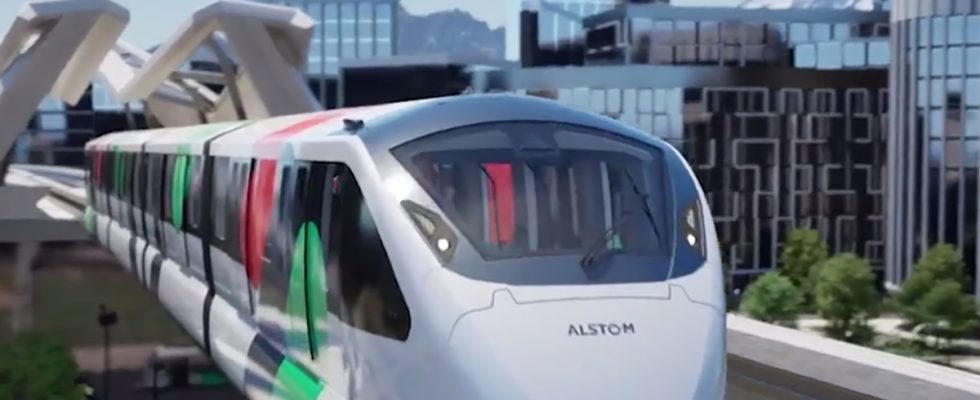Last September, in Berlin, Alstom took advantage of the InnoTrans exhibition to demonstrate its ambitions in the field of virtual reality. The manufacturer, with the help of SoWhen?, has developed its own virtual universe.
Through this “metaverse” of almost 4 km2, Altsom has therefore developed a virtual demonstration space, a showroom. Intended for its customers, it reproduces a city where its products circulate there, i.e. “12 types of virtual trains”.
Immersion to reduce product complexity
“The fully virtualized city makes it possible to circulate trains, metros, locomotives, trams and monorails in 3D”, describes the industrialist, who has therefore appropriated gaming technologies to design an “interactive 3D, scalable and tailor-made.
For Alstom, it is the “first of its kind in the railway industry”. Through this environment, the company intends to offer its customers and partners “an immersive passenger experience”.
The digital city provides access to “interactive simulations as well as comprehensive fleet and traffic management systems”. In addition to use in customer relations, Alstom also plans to put these technologies at the service of training and learning.
The company has already designed immersive training accessible from its e-learning platform, Alstom University. For the creation of virtual reality media, it has partnered with the low code editor Uptale.
Training, a concrete focus for VR
The actor also develops immersive training content with manufacturers such as Stellantis and Michelin. VR must therefore also help Alstom to promote employee knowledge of its products and the retention of talent.
Another railway player, SNCF Réseaux, is developing its virtual reality applications through use in the areas of training, simulation and change management. Since 2018, the company has had its own in-house skills with the Immersive Studio.
For the SNCF as for Alstom, these applications are part of a strategy based on the industrial metaverse. If Meta seems to have given up on creating a consumer metaverse, manufacturers are combining VR and AR, but also digital twins, to meet their needs.
In aeronautics, the Toulouse publisher Mimbus, specializing in VR for training, approached Daher in 2023. As part of an R&D program supported by the Occitanie region, the two partners aim to develop the logistician’s metaverse.
Another giant in the region, Airbus is also accelerating on uses, and in particular those of mixed reality. Within its various entities, the manufacturer has founded core teams in charge of developing mixed reality applications.
